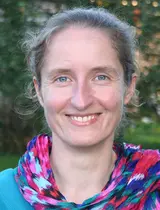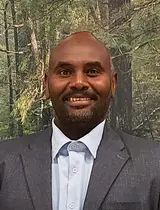Tandem Project
Academic Inspiration for Sudanese Researchers (AIM)
Mentoring Sessions & Public Lecture Series
The Academic Inspiration & Mentoring Programme (AIM) is launched to provide crucial support to young Sudanese researchers impacted by the ongoing political conflict in Sudan. With many academic institutions rendered inoperable and individuals displaced both internally and abroad, AIM emerges as a vital initiative, offering much-needed guidance and fostering connections within the international academic community.
Over the course of the six-week online programme, approximately 40 participants engage in a series of academic training and mentoring sessions. AIM is designed to equip aspiring researchers with essential skills, knowledge, and support to help them navigate their academic careers during this period of instability.
Building a resilient research career
The first phase of the programme focuses on foundational topics critical to building a resilient research career, particularly in crisis contexts. The sessions include strategic research planning, emphasising adaptability and foresight. Led by experts such as AGYA member Prof. Dr. Ahmed Siddig, participants are introduced to effective ways of overcoming academic challenges while maintaining a forward-looking approach. The programme also highlights the importance of communicating scientific findings clearly, with Prof. Dr. Mai Mamoun Ali Hassan from the Sudanese Women in Science Organisation coaching participants on how to effectively share their research with a broader audiences.
In addition to science communication, participants receive training in academic networking and collaboration, facilitated by Prof. Dr. Tyseer Elhadi Omer from the Gender Studies Institute at the University of Khartoum. This provides young researchers with the tools to establish and nurture professional relationships that are crucial for academic growth. Maximising digital tools for academic productivity is another key component, as Prof. Dr. Emad Hassan Elawad Yasin from the Faculty of Forestry at the University of Khartoum introduces participants to essential digital resources to enhance their research output.
AIM also offered valuable guidance on securing scholarships and grants. Under the instruction of Prof. Dr. Eltayb Abdelatif from the National Centre for Research, participants learned the processes and strategies involved in successfully applying for research funding. Furthermore, the programme emphasised career planning, providing participants with long-term strategies for career growth, particularly in challenging environments.
The second phase of the programme offers more personalised mentoring sessions, where participants work in smaller groups with mentors to delve deeper into topics such as advanced research planning, proposal writing, data collection, analysis, and science communication. Mentors like Dr. Ali Omer from the University of Vienna and Prof. Dr. Mai Mamoun Ali Hassan guided participants through these complex subjects, ensuring they received tailored support based on their specific academic interests and career goals.
Public lecture series: Strategies to navigate through times of crisis
In addition to the mentoring sessions, the programme featured a public lecture series led by distinguished Sudanese researchers. These lectures addressed key issues such as strategies for young researchers navigating crises, the unique challenges and resilience of women researchers in conflict zones, and the role of researchers as agents of peace and stability in nation-building. These discussions offered participants and external guests both inspiration and practical strategies for contributing to their fields in difficult circumstances.
The feedback from participants has been overwhelmingly positive. For many of the researchers, this was the first opportunity after months of war to reconnect, to exchange ideas with others, and to make concrete plans for the future.
Prof. Dr. Ahmed Siddig
Many have expressed a desire for future opportunities to build on the skills they acquired during AIM, particularly with a focus on further career development. The project not only provided practical guidance but also offered relevant materials that participants found instrumental in advancing their professional goals. Several attendees emphasised that the mentoring they received helped build confidence and offered crucial support during a challenging time for Sudanese academics. Others expressed appreciation for the opportunity “to once again connect and engage with like-minded academics after being cut off from their network due to displacement.”
With the programme now successfully concluded, there are already plans underway for future projects, as the demand for continued learning and mentorship remains strong. By providing Sudanese researchers with the skills and networks they need to persevere and succeed, AIM has empowered a group of scholars ready to contribute to the academic community and help their peers advance their careers despite the challenges they face.
It is a wonderful opportunity to be able to contribute to the realisation of AIM. We have contributed to building a resilient community of Sudanese researchers who are eager to exchange and support one another. The high attendance and level of engagement have been impressive. I look forward to the follow-up project.
Prof. Dr. Kristin Kliemt
- Disciplines Involved
- Forestry Ecology, Physics and Material Science, Biotechnology and Biosafety, Anthropology, Migration Studies
- Cooperation Partner
- University of Khartoum
- Year
- 2024
- Funding Scheme
- Tandem Project
- Countries Involved
- Germany, Sudan, United States of America
- AGYA Publication
- Backing Ecologists to Succeed and Thrive (BEST) in Crisis Zones: Inspirations From the 2024 ESA Annual Meeting


